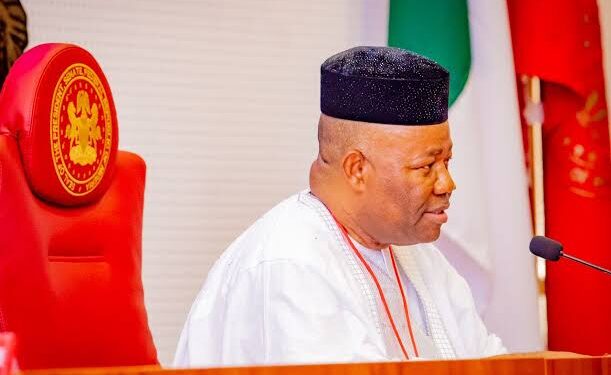The Senate will hold public hearings on tax reform bills on Monday and Tuesday next week through its Committee on Finance. President Bola Tinubu forwarded these bills to both chambers of the National Assembly on October 3, 2024.
The tax reform bills include: “The Nigeria Tax Bill (NTB) 2024, The Nigeria Tax Administration Bill (NTAB) 2024, the Nigeria Revenue Service (Establishment) Bill (NRSEB) 2024, the Joint Revenue Board (Establishment) Bill (JRBEB) 2024.”
These bills were passed for a second reading in the Senate on November 28, 2024, and subsequently referred to the Committee on Finance for further legislative input through a public hearing.
Speaking to journalists on Wednesday after a closed-door meeting with committee members ahead of the hearing, the Chairman of the Committee, Senator Mohammed Sani Musa (Niger East), stated that the public hearing follows extensive consultations with relevant stakeholders.
Sani Musa explained that the Joint Revenue Board Establishment Bill and the Nigeria Revenue Service Bill would be deliberated on Monday. At the same time, the Nigeria Tax Administration Bill and the Nigeria Tax Bill will be reviewed on Tuesday.
According to him, to ensure a thorough consideration of the bills—which aim to reshape the nation’s economic landscape—the following key stakeholders are expected to participate in the public hearing:
“Minister of Finance and Coordinating Minister of the Economy, Mr Wale Edun, Attorney General of the Federation, Lateef Fagbemi, Chairman of the Federal Inland Revenue Service, Zacch Adedeji, Statistician-General of the Federation and Chief Executive of the National Bureau of Statistics, Prince Adeyemi Adeniran, Minister of Petroleum, Minister of Trade and Investment.”
Representatives from 71 different stakeholder groups have also been invited to the hearing.
“The Committee is inviting 71 different groups of stakeholders to this crucial public hearing,” Sani Musa said.
“Both the Senate and the House of Representatives have completed the second reading of the reform bills and are now ready for the public hearing.
“Committee members have reviewed the bills thoroughly, gaining a clearer understanding of their objectives—particularly in the areas of tax administration, collection, and operations in Nigeria.
“The primary goal of these reform bills is to enhance government revenue generation to position our country among advanced economies. This will enable us to adequately fund infrastructure, education, agriculture, and other critical sectors that sustain our economy.”
He further emphasised that the public hearing is expected to proceed smoothly, as prior stakeholder engagements have helped shape discussions.
“We have engaged with numerous stakeholders before reaching this stage, and I believe the public hearing will be productive. Any grey areas that arise will be addressed.
“President Bola Tinubu has repeatedly stated that he will not interfere in the legislative process. Our duty as lawmakers is to act in the country’s best interest.
“We may represent different tribes, religions, and regions, but above all, we are Nigerians. We aim to enact laws that will place Nigeria on the right economic path. By the grace of God, we will succeed,” he said.
Before the closed-door session, the committee met with top officials of the Ministry of Finance Incorporated (MOFI), led by its Managing Director and Chief Executive Officer, Dr. Armstrong Tokang, who was directed to provide the committee with the National Assets Register of the country.











